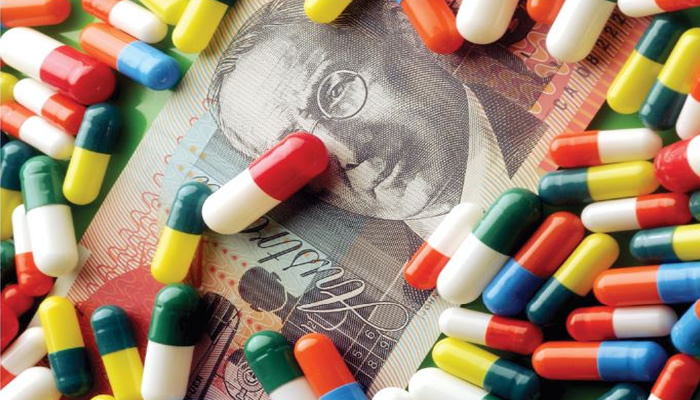
The distribution of drugs across Nigeria is being severely impacted by the increasing insecurity in the country, coupled with continuous rises in the prices of essential medicines, according to pharmacists.
They have pointed out that the escalating security challenges not only disrupt the supply chain of drugs but also result in a significant surge in the costs of medications, making it difficult for many ill Nigerians to afford crucial treatments.
Senior health professionals have emphasized that the disruption in drug distribution has further worsened the crisis in the healthcare sector.
Sharing their concerns exclusively with PUNCH Healthwise, pharmacists highlighted how the insecurity has restricted patient access to drugs, putting additional strain on the healthcare system.
Experts are alarmed by the continuous increase in drug prices, expressing fears about the ongoing trend that is impacting many Nigerians.
They stress that addressing the escalating insecurity is vital to stabilizing drug prices and ensuring uninterrupted access to medications nationwide.
Vice-President of the Diabetes Association in Nigeria, Mr. Bernard Enyia, recently bemoaned the sharp rise in the cost of managing his condition, citing a drastic increase in his monthly expenses for essential medications.
“A year ago, I managed my diabetes with a monthly budget of N70,000 for insulin and other medical expenses.
“Today, I spend over N180,000 monthly, a figure that has more than doubled.
Factors such as forex scarcity, high production costs, expensive raw materials, subsidy removal, and high-interest rates have collectively contributed to driving drug prices up by over 300 percent.
The depreciation of the naira and the exit of foreign pharmaceutical companies from Nigeria have further fueled the spike in drug prices.
Since GlaxoSmithKline announced its departure from Nigeria last August, the prices of its products have soared, leading to scarcity in the market.
Furthermore, the decrease in the value of the naira following the Central Bank of Nigeria’s decision to float the national currency has made it challenging for manufacturers to secure raw materials, resulting in cost cuts and job losses.
Dr. Lolu Ojo, a former Chairman of the Association of Industrial Pharmacists of Nigeria, highlighted how insecurity has significantly impacted both the cost and transportation of drugs within the country.
Ojo, a member of the Pharmaceutical Manufacturers Group of the Manufacturers Association of Nigeria, pointed out that security issues along various routes, particularly in the North, East, and Middle Belt regions, are hindering the movement of pharmaceutical products.
Even previously secure routes in the Western region are now under threat due to concerns about attacks from Fulani herdsmen, as noted by the pharmacist.
To mitigate the risks, Ojo, who also serves as the Managing Director of Merit Pharmaceutical Company, mentioned resorting to air transport for deliveries due to increased safety measures, despite the higher costs involved.
He emphasized that the surging insecurity across Nigeria has led to ballooning operational expenses for pharmaceutical firms, cutting into profit margins and jeopardizing their sustainability.
He urged government authorities at all levels to tackle the security challenges promptly to prevent further price spikes and disruptions in drug distribution.
Ojo highlighted the compromise of even more cost-effective road transport routes by security threats, underscoring the urgency of addressing these issues for the smooth operation of pharmaceutical businesses.
Chairman of the Pharmaceutical Wholesalers and Distributors Association of Nigeria, Ogheneochuko Omaruaye, echoed the concerns about the escalating insecurity severely affecting drug distribution in the country.
He explained how this disruption not only drives up drug costs but also impacts their availability in different regions.
Stating that distributing medicines to northern regions in Nigeria incurs higher costs due to security issues and poor infrastructure, Omaruaye emphasized the critical role of security in efficient drug distribution.
He further outlined the challenges faced in delivering drugs swiftly to specific areas, especially those with heightened security risks, like Borno State in the North.
Highlighting the logistics hurdles in drug distribution, Omaruaye stressed the need for direct action to address the security concerns that are driving up costs and limiting access to essential medication in various parts of the country.
He called for government intervention to subsidize logistics for medicines, citing the heavy reliance on imported products and raw materials that are susceptible to currency fluctuations, ultimately impacting the affordability of drugs in Nigeria.
